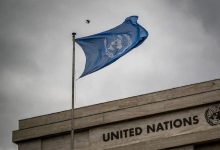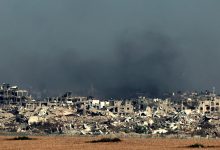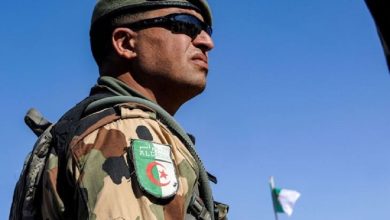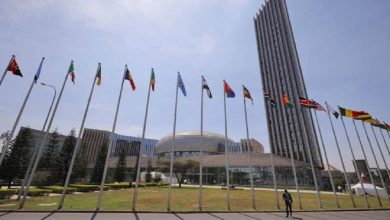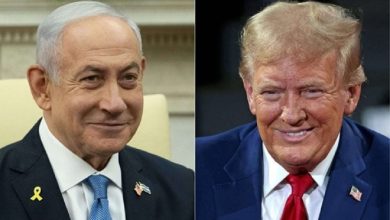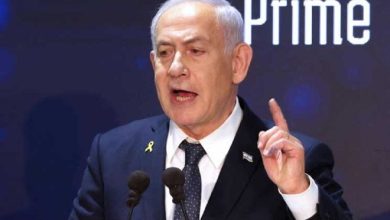Tensions in Algiers: Protesters Blocked from Marching to U.S. Embassy Amid Outcry Over Gaza War
Algerian security forces prevent pro-Palestinian demonstrators from reaching U.S. Embassy as political and public pressure mounts over Israel's actions in Gaza.
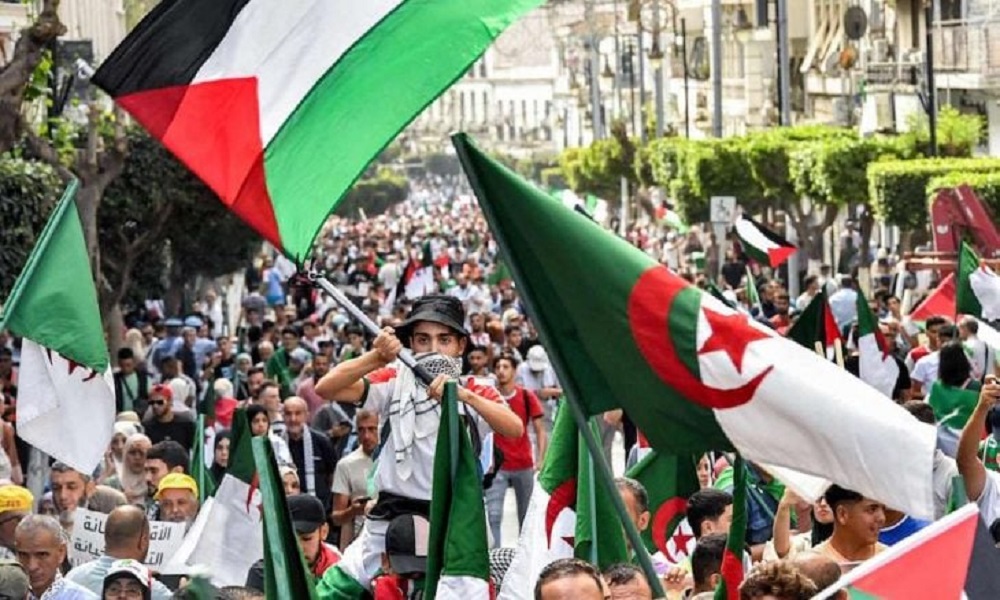
Watan-Algerian security forces imposed a tight security cordon on major streets in the capital on Friday, after protesters attempted to march toward the U.S. Embassy, starting from a protest organized by the Movement of Society for Peace (MSP) in front of its headquarters in El Mouradia, in solidarity with the Palestinian people against the genocide war waged by Israel.
Although the event was scheduled as a solidarity stand for the Palestinian cause after Friday prayers, many participants refused to remain in place and insisted on turning it into a march toward the U.S. Embassy to express their rejection of its presence in Algeria. They argued that the American green light for the genocide in Gaza warrants a firm response from the Algerian people.
As soon as the protesters began to move, security forces swiftly enforced a wide security perimeter, preventing the march from advancing toward its intended destination. Despite repeated attempts to break through the security cordon, police forces were heavily deployed and maintained full control of the situation, resulting in the arrest of several demonstrators.

During the protest, the crowd chanted slogans against the United States, with unified voices shouting: “No standing, no words… march forward,” and “No to the American Embassy on Algerian soil.” Protesters emphasized their rejection of merely standing and chanting, calling for action in the streets to deliver their message more effectively.
One protester, part of the group that attempted to reach the embassy, wrote in a post: “We tried to march toward the U.S. Embassy after the protest, but the security cordon was dense, and we couldn’t get past it. Nevertheless, we bear witness before God that we moved for His sake, in support of our brothers in Gaza, in response to our consciences, hearts, and minds, and as a proof against all of us. It was our duty to act, and the least we could do was speak out loud.”
For his part, the head of the Movement of Society for Peace, Hassani Cherif, gave a speech during the protest, stressing that the Palestinian cause is not a distant crisis for Algeria, but one that affects all Arab and Muslim peoples. He pointed out that what is happening in Gaza today is not isolated from broader regional schemes.
He said in this context: “We did not come to merely talk about Gaza; everything happening there is plain to see, and massacres are being committed before the eyes of the world. We came to reaffirm the need to work toward a project of support—not just with slogans, but through concrete steps that enable our brothers to overcome the imbalance imposed by the powers backing the occupation.”

Cherif Warns of Regional Destabilization Scheme, Calls for Unified Algerian Stance on Palestine
Cherif, who was interrupted by angry chants criticizing his party’s decision to limit the event to a protest stand, noted that the Zionist project does not only target the Palestinian cause but also aims to dismantle and fragment Arab and Muslim countries from within. He highlighted that what has happened in Syria, Yemen, Sudan, and Libya is part of this plan and warned that Algeria might not be immune to these challenges.
He added: “We see that this Zionist scheme is not just about eliminating the Palestinian cause; it aims to destabilize states and tear them apart from within. We have seen what happened in Syria, Yemen, Sudan, and Libya. Today, Sudan suffers from chaos and infighting, and if there is no real awareness, this could spread to other countries, including Algeria.”
Cherif also emphasized the importance of a unified national stance on the Palestinian cause, affirming that Palestine is not a divisive issue among Algerians and should not become a source of conflict between political parties or ideological currents. Rather, it should be the cause that unites all Algerians, as demonstrated during the mass march on October 21. In this regard, he called on Algerian authorities to allow the people to express their stance freely, warning that restricting popular movements could diminish the momentum that the Palestinian cause needs at this critical time.
He stated: “We don’t want Algerians to turn against each other over Palestine, nor do we want the cause to be exploited for personal or partisan projects. Our stance must be clear and strong, based on genuine national unity, away from narrow considerations. We are not asking anyone to align with a particular faction, but we want our voice to be one as Algerians—just like on October 21, when people of all backgrounds rallied for Palestine.”
Despite Algeria’s strong official stance in support of the Palestinian cause at the UN Security Council and in government speeches, there are growing calls to allow large-scale marches in support of Palestine. Several parties and associations have urged the authorities to lift restrictions on protests, especially given the national consensus on the Palestinian issue. Authorities have enforced strict measures on public demonstrations since the Hirak movement, requiring prior authorization for any protest in the capital.

